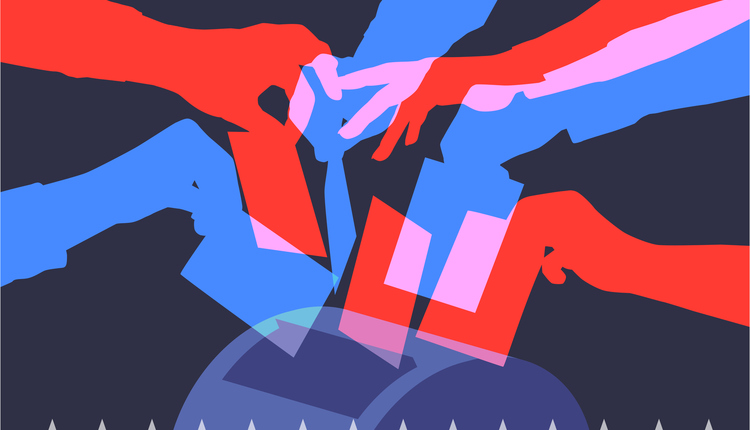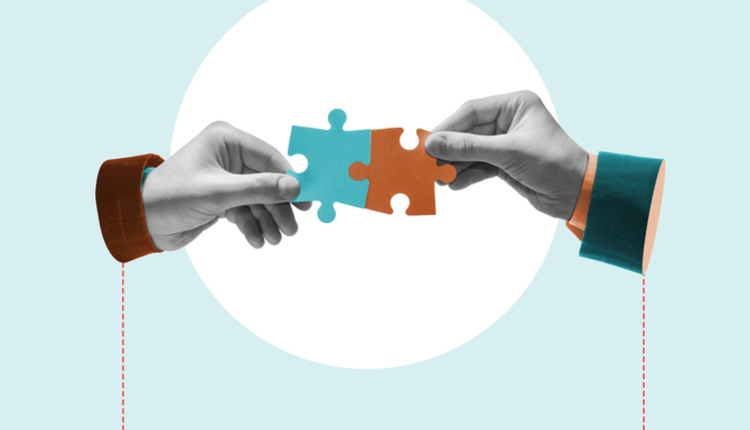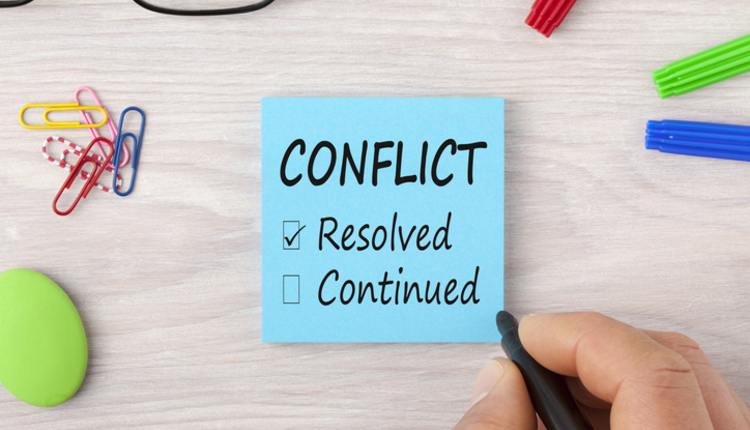"He who knows others is wise. He who knows himself is enlightened." - Lao Tzu
"Do not think of yourself more highly than you ought, but rather think of yourself with proper judgment." - Apostle Paul
Having a high level of Emotional Intelligence (EQ) is essential to being an effective manager - and EQ starts with having accurate self-awareness. Self-awareness can help us gain self-control and be helpful, not hurtful, to people around us. Some tools to help expand our self-awareness include: get feedback from others such as using 360 degree surveys; have a mentor to speak into your life; and constantly seek feedback from others on how we are doing.
Another tool to better understand ourselves is to take one or more of the Personality type tests such as Meier-Briggs or Perspectives. The most credible test according to researchers and experts in the field is the "Big Five Personality Trait" model. Taking this test and analyzing the results will help increase your self-awareness. I suggest discussing your results with some people that you work closely with, and listen to their feedback - both positive reinforcement and constructive suggestions. Then, intentionally work at leveraging your potential strengths and mitigating your potential weaknesses.
Big Five Personality Trait Model
You can take the Big Five Personality test and get your results for free at the following website: outofservice.com/big five. Here is an overview of the five dimensions and their meanings:
Agreeableness. This dimension refers to an individual's tendency to get along well with others. Highly agreeable people are likable, cooperative, warm and trusting. People who score low on this dimension tend to be cold, disagreeable and antagonistic.
Extraversion. This dimension captures our comfort level with relationships. Extraverts tend to be outgoing, social, friendly, affectionate and assertive. Introverts tend to be reserved, non-assertive and quiet.
Emotional Stability. This dimension taps a person's ability to withstand stress. People with positive emotional stability tend to be calm, self-confident, optimistic and secure. Those with high negative scores tend to be nervous, anxious, dissatisfied and insecure.
Openness to Experience. This dimension addresses the tendency to be original, have broad interests, be daring and take risks. Extremely open people are creative, innovative, curious and artistically aware. Those at the other end of this scale are more conventional and find comfort with the familiar.
Conscientiousness. This dimension is a measure of reliability. A highly conscientious person is responsible, organized, dependable and persistent. Those who score low are easily distracted, disorganized and unreliable.
Big Five Traits and Work Performance
Research on the Big Five model has found correlations with these personality dimensions and job performance. The Big Five trait most consistently related to work performance is conscientiousness. This trait is as important for managers as it is for front-line employees. The most effective performers score high in this dimension in the form of persistence, attention to details and setting of high standards. Highly conscientious people learn more and develop higher levels of work knowledge, which contributes to higher levels of job performance.
Other findings are that people who score high on emotional stability are happier than those who score low. Emotional stability is the most strongly trait related to life satisfaction, job satisfaction and low stress levels. Extraverts tend to be happier in their jobs and in their lives overall - and tend to emerge more often as leaders than introverts. People who score high on openness to experience are more likely to be effective leaders. Agreeable people are happier and better liked than disagreeable people.
The experts say that if we are intentional, we can modify our natural tendencies and become more effective. For example, I naturally tend to score lower on Openness to Experience. I have intentionally pursued new experiences to help gain the benefits and become more balanced on this dimension.
Using the Big Five Test to Help Others
In addition to using the test for yourself, why not try it with your key team members? Helping them better understand themselves is valuable for their own self-development. It also can help you better synchronize strengths, weaknesses and tendencies and develop a more powerful team.
I have used this model with my leadership team. I explained the model, and then had them take the test and do their own self-analysis. We then shared our individual results and provided feedback and shared suggestions. It's a great tool to help the members better understand and support each other.
Let me close with a quote from tennis star Billie Jean King: "I think self awareness is probably the most important thing towards being a champion (or a great manager! - my addition)". Good luck on your journey of increasing your self-awareness and effectiveness!
Wes Friesen, CMDSM, EMCM, MQC, ICP, CCM,CMA, CM, CFM, APP, PHR is the Manager of Revenue Collection & Community Offices for Portland General Electric, a utility in Portland, Oregon that serves over 820,000 customers. Wes teaches university classes and is a featured speaker at national Conferences like National Postal Forum, MailCom, CS Week and others. Wes can be contacted at Wes.Friesen@pgn.com. Check out his personal web-site for free information (www.wesfriesen.com).
"Do not think of yourself more highly than you ought, but rather think of yourself with proper judgment." - Apostle Paul
Having a high level of Emotional Intelligence (EQ) is essential to being an effective manager - and EQ starts with having accurate self-awareness. Self-awareness can help us gain self-control and be helpful, not hurtful, to people around us. Some tools to help expand our self-awareness include: get feedback from others such as using 360 degree surveys; have a mentor to speak into your life; and constantly seek feedback from others on how we are doing.
Another tool to better understand ourselves is to take one or more of the Personality type tests such as Meier-Briggs or Perspectives. The most credible test according to researchers and experts in the field is the "Big Five Personality Trait" model. Taking this test and analyzing the results will help increase your self-awareness. I suggest discussing your results with some people that you work closely with, and listen to their feedback - both positive reinforcement and constructive suggestions. Then, intentionally work at leveraging your potential strengths and mitigating your potential weaknesses.
Big Five Personality Trait Model
You can take the Big Five Personality test and get your results for free at the following website: outofservice.com/big five. Here is an overview of the five dimensions and their meanings:
Agreeableness. This dimension refers to an individual's tendency to get along well with others. Highly agreeable people are likable, cooperative, warm and trusting. People who score low on this dimension tend to be cold, disagreeable and antagonistic.
Extraversion. This dimension captures our comfort level with relationships. Extraverts tend to be outgoing, social, friendly, affectionate and assertive. Introverts tend to be reserved, non-assertive and quiet.
Emotional Stability. This dimension taps a person's ability to withstand stress. People with positive emotional stability tend to be calm, self-confident, optimistic and secure. Those with high negative scores tend to be nervous, anxious, dissatisfied and insecure.
Openness to Experience. This dimension addresses the tendency to be original, have broad interests, be daring and take risks. Extremely open people are creative, innovative, curious and artistically aware. Those at the other end of this scale are more conventional and find comfort with the familiar.
Conscientiousness. This dimension is a measure of reliability. A highly conscientious person is responsible, organized, dependable and persistent. Those who score low are easily distracted, disorganized and unreliable.
Big Five Traits and Work Performance
Research on the Big Five model has found correlations with these personality dimensions and job performance. The Big Five trait most consistently related to work performance is conscientiousness. This trait is as important for managers as it is for front-line employees. The most effective performers score high in this dimension in the form of persistence, attention to details and setting of high standards. Highly conscientious people learn more and develop higher levels of work knowledge, which contributes to higher levels of job performance.
Other findings are that people who score high on emotional stability are happier than those who score low. Emotional stability is the most strongly trait related to life satisfaction, job satisfaction and low stress levels. Extraverts tend to be happier in their jobs and in their lives overall - and tend to emerge more often as leaders than introverts. People who score high on openness to experience are more likely to be effective leaders. Agreeable people are happier and better liked than disagreeable people.
The experts say that if we are intentional, we can modify our natural tendencies and become more effective. For example, I naturally tend to score lower on Openness to Experience. I have intentionally pursued new experiences to help gain the benefits and become more balanced on this dimension.
Using the Big Five Test to Help Others
In addition to using the test for yourself, why not try it with your key team members? Helping them better understand themselves is valuable for their own self-development. It also can help you better synchronize strengths, weaknesses and tendencies and develop a more powerful team.
I have used this model with my leadership team. I explained the model, and then had them take the test and do their own self-analysis. We then shared our individual results and provided feedback and shared suggestions. It's a great tool to help the members better understand and support each other.
Let me close with a quote from tennis star Billie Jean King: "I think self awareness is probably the most important thing towards being a champion (or a great manager! - my addition)". Good luck on your journey of increasing your self-awareness and effectiveness!
Wes Friesen, CMDSM, EMCM, MQC, ICP, CCM,CMA, CM, CFM, APP, PHR is the Manager of Revenue Collection & Community Offices for Portland General Electric, a utility in Portland, Oregon that serves over 820,000 customers. Wes teaches university classes and is a featured speaker at national Conferences like National Postal Forum, MailCom, CS Week and others. Wes can be contacted at Wes.Friesen@pgn.com. Check out his personal web-site for free information (www.wesfriesen.com).








